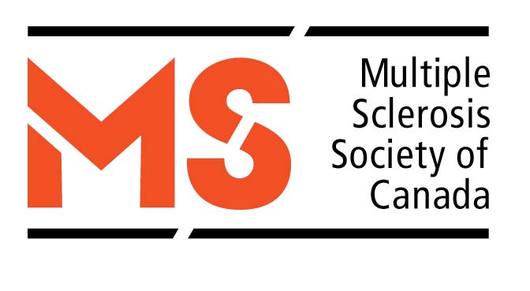“Premier, have a heart”
On Valentine’s Day, Multiple Sclerosis Society of Canada representatives delivered this message, written on a giant heart-shaped cookie, to Danny Williams, premier of Newfoundland and Labrador. The MS Society’s Atlantic Division has been conducting an intense campaign to convince the provincial government to include an MS drug cost reimbursement program in its 2007 budget.
Newfoundland and Labrador is the only province without an equitable and accessible MS drug program. Right now, only people on social assistance, low-income seniors and residents of long-term care facilities receive full drug coverage. This small program doesn’t benefit most people with MS who are younger and working.
The problem is that the drugs available to treat MS are expensive, costing approximately $17,000 to $40,000 a year. All of them reduce the frequency and severity of MS attacks, and there are increasing indications that they slow the development of long-term disability.
The Society estimates there are more than 600 people with MS in Newfoundland and Labrador who do not have access to needed therapies. A family, with children, with an income of $30,000 per year has to pay 70 percent of the cost of the MS drug therapies. Worse still, a family with a household income of more than $30,000 does not qualify and receives no additional government support. For single people, the picture is even more bleak. Some have been forced to quit their jobs and go on social assistance to qualify for drug coverage.
The MS Society believes this situation should not exist. Canadians are justifiably proud of a medical system that delivers health care based on the principles of equity, affordability and quality. Thanks to medicare pioneers, Canadians are able to see their doctors and be treated in hospital without having to choose between paying medical bills and buying food or winter boots for their children.
However, prescription drugs — an increasingly essential part of good medical care—are still not part of the universal health care system. More and more, people who are ill or injured are less likely to be treated in hospital or will remain there a much shorter time. The appropriate use of prescription drugs is preventing serious illness, restoring people to health and prolonging life.
Two recent major studies of the Canadian health system—one by former senator Michael Kirby and the other by former premier Roy Romanow—both concluded it is time to bring prescription drugs into the universal health care system.
Right now, provincial drug programs provide vastly uneven access and reimbursement for expensive drugs such as those used for MS. Some provinces provide almost 100 percent coverage while others demand individuals pay a significant amount of the cost. However, no other provincial government is as restrictive as Newfoundland and Labrador.
There has been some movement toward a so-called catastrophic drug program that would help people who have very high drug costs. In 2004, the MS Society welcomed the promise made following the First Ministers’ meeting on the future of health care.
In September 2004, they stated: “First Ministers agree that no Canadians should suffer undue financial hardship in accessing needed drug therapies. Affordable access to drugs is fundamental to equitable health outcomes for all our citizens.” The commitment to universality and equity of coverage was underscored again in the National Pharmaceuticals Strategy Progress Report, June 2006.
Unfortunately, Canadians with MS are still waiting, as are millions of others. We hope that the government of Newfoundland and Labrador will have a heart and institute an equitable and accessible drug program for people with MS.
However, Canadians want and deserve more. What is needed is for the federal, provincial and territorial governments to work together to create a drug access program so Canadians need not spend more than three percent of their family income on prescription drugs no matter where they live in Canada. It is only fair.
The MS Society of Canada will continue to work on behalf of people with MS and other Canadians to reach this goal. For more information about the MS Society, visit www.mssociety.ca.
Yves Savoie joined the Multiple Sclerosis Society of Canada in February 2007 as president and chief executive and president of Ontario Division. Previously he was executive director of Family Services of Toronto, and from 1998 to 2003 was national executive director of Muscular Dystrophy Canada. He describes himself as a passionate advocate for the inclusion of people with disabilities in all aspects of life.















